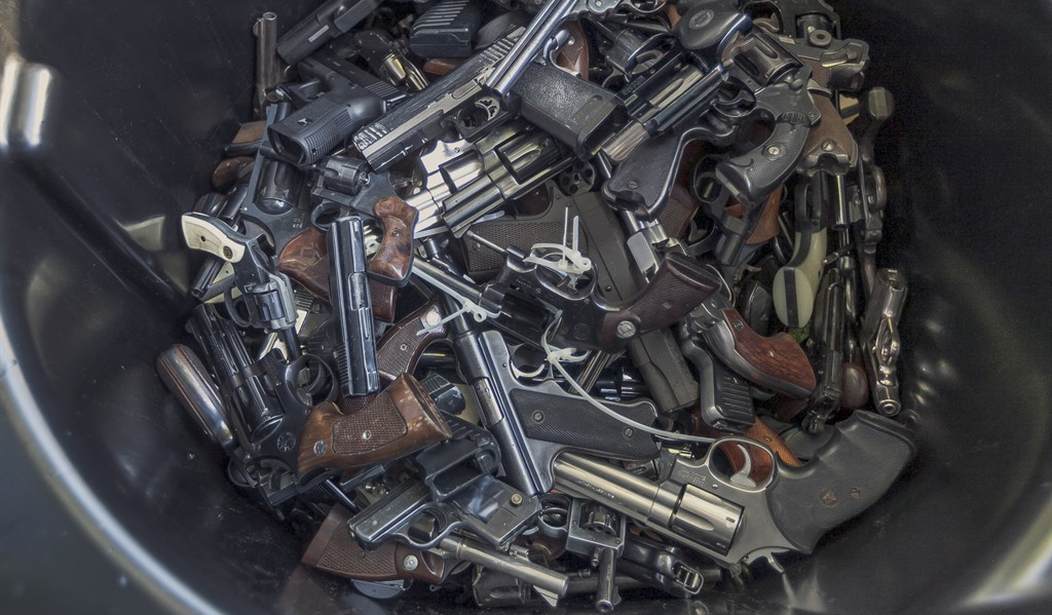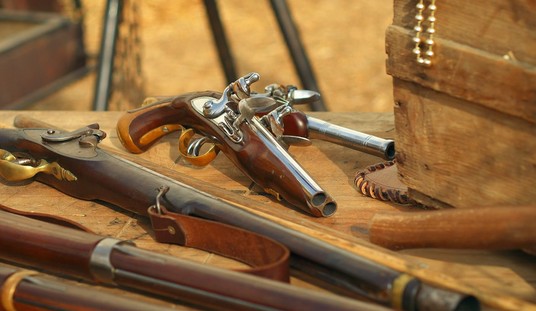Gun buybacks aren’t so much controversial as they are idiotic. The idea that a criminal will get rid of a perfectly good gun just because they can get a few bucks seems to be counterintuitive. It’s as if people think criminals are just stupid and will take the short-term gain when they can probably get more by actually using the gun to hold up a liquor store or something.
The problem we run into, though, is that too few people are interested in questioning gun buybacks. It’s too much of a sacred cow for so many cities that it’s almost forbidden to ask if they’re accomplishing anything.
So, it’s kind of nice to see someone raising the question about a “buyback” in Roanoke, Virginia slated for later this month.
I’m sure many people had the same thought I did when they heard that announcement: Considering the amount of funding, how many guns can that lure off city streets?
According to elementary arithmetic, the answer’s not many. At those rates, a $4,500 grant would cover gift cards for as few as 18 working semi-automatic handguns; or 90 fully inoperable firearms; or some combination of working and nonworking guns that fall between those numbers.
For example, if the buyback lured equal numbers of each category, organizers would be out of gift cards as soon as they’d procured 10 semi-automatic handguns, 10 long guns or revolvers and 10 inoperable firearms.
Will 30 or 45 or 60 fewer guns on Roanoke streets make a difference in a city of almost 100,000 people? It’s hard to tell.
One reason is, there’s no clear picture of how exactly many guns are in Roanoke or even in Virginia. A 2004 study in the Journal of Quantitative Criminology estimated that roughly 48% of households in the commonwealth have a gun. If those numbers hold true through Roanoke’s 40,800 households, it suggests there are nearly 20,000 firearms in the city.
And if that’s the case, how is getting a few dozen of them off the street going to make a difference?
However, where the author misfires, though, is that he seems to believe that more money would actually make a difference. It won’t.
See, most of the guns turned in at these things are old guns that no one wants but they aren’t sure of how to get rid of them. Usually, they’re firearms that no one wants.
The only time criminals turn theirs in is if they’re in need of a place to dump a gun used in a homicide. The “no questions asked” policy at many of these events makes it an ideal way to take something that would get dropped in the river and make a few bucks off of it.
That’s about it.
Of course, let’s not overlook the fact that studies have found that guy buybacks don’t actually work. That’s right. All that effort and money for something that shows absolutely no difference in crime statistics. Sure, that may be in part because it’s impossible to get enough of the guns to make a difference, but that’s kind of the point. The people who you need to disarm aren’t going to accept a gift card for groceries in exchange.
You’ve got to understand why they have them if you want to address that issue, and gun buybacks don’t address it.







Join the conversation as a VIP Member